Account relating to the Boxer Uprising service of Leighton Seymour Bracegirdle, [date unknown]
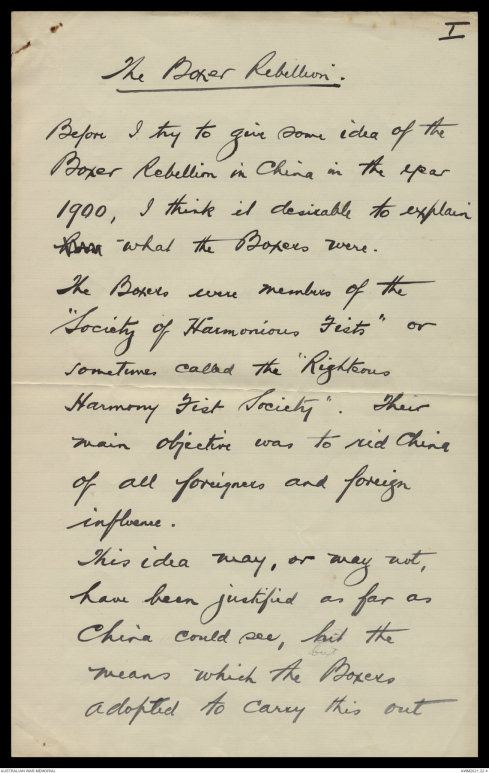
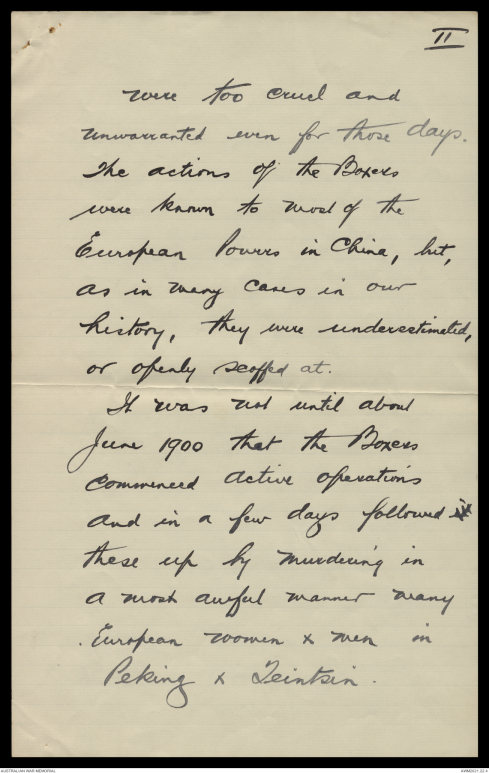
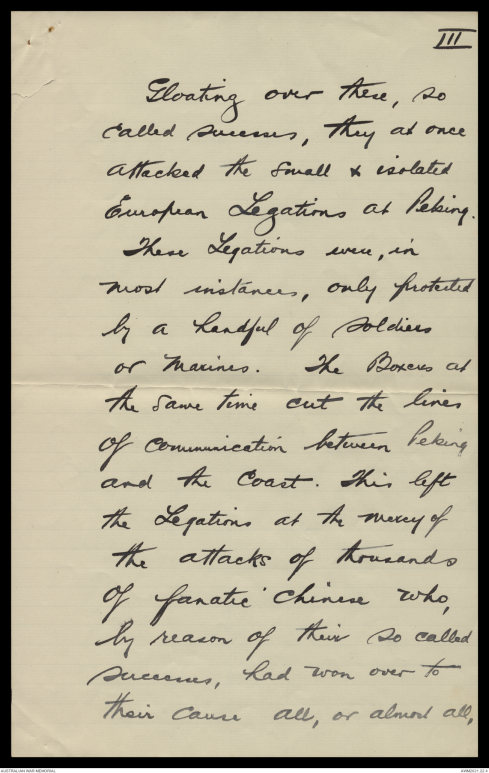
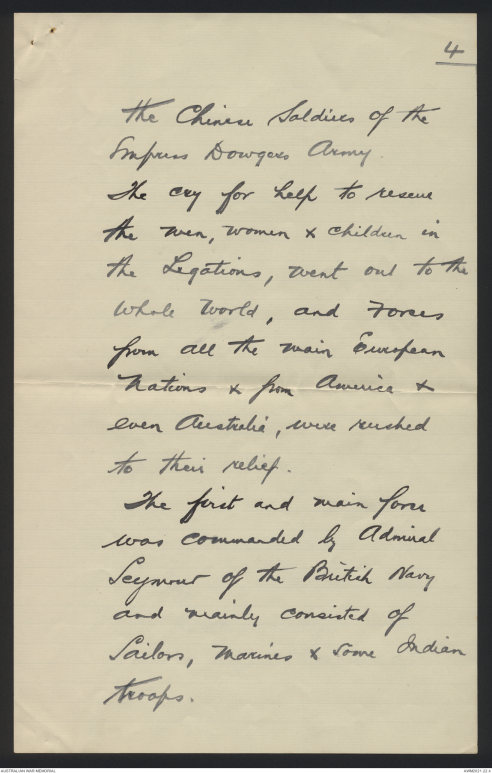
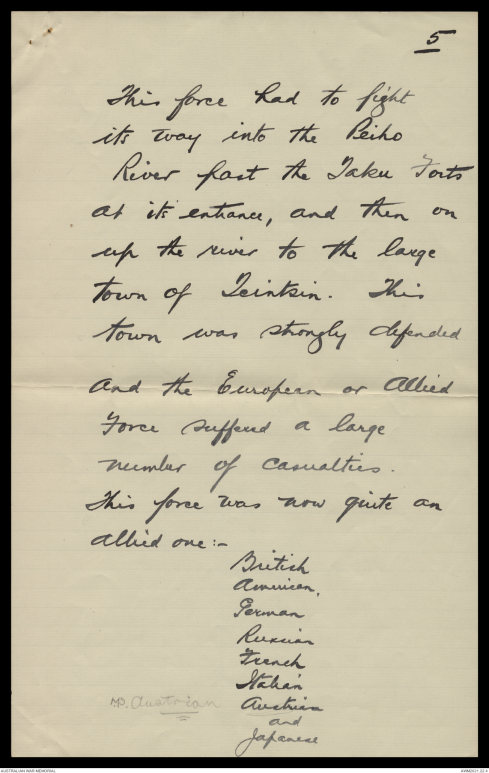
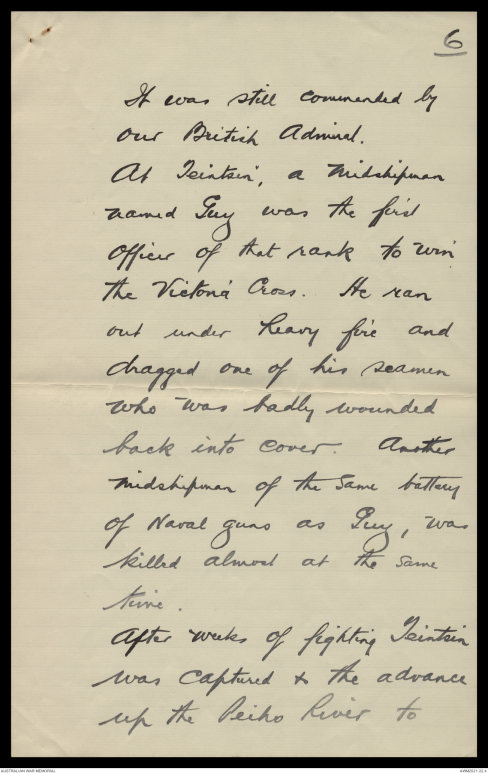
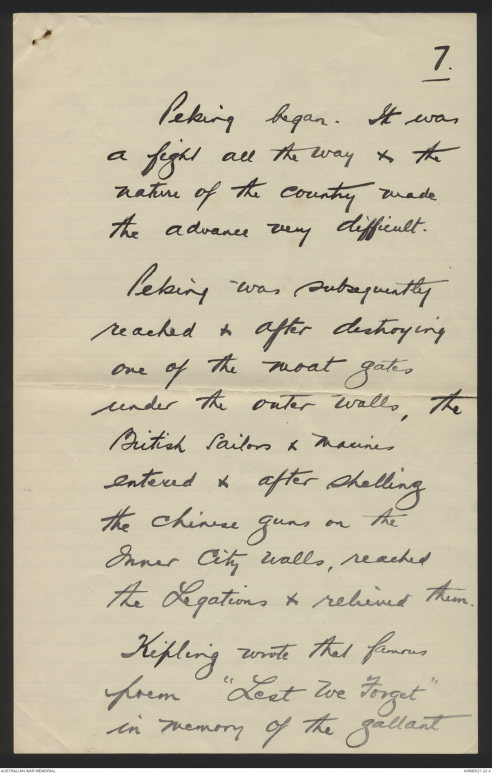
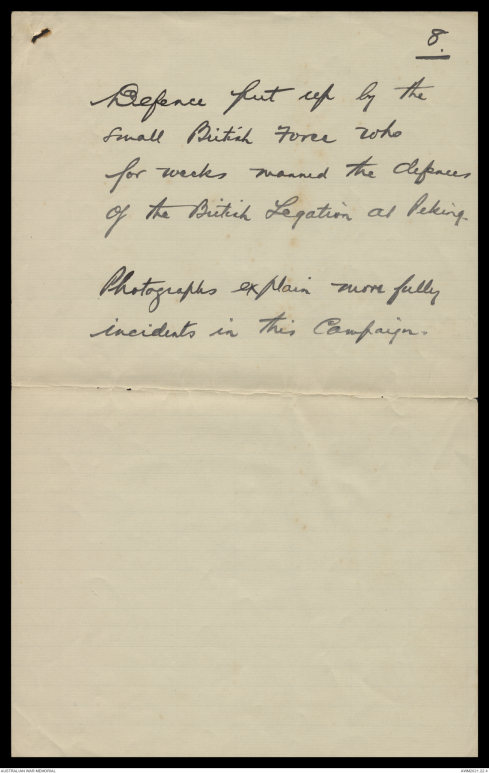
I
The Boxer Rebellion
Before I try to give some idea of the
Boxer Rebellion in China in the year
1900, I think it desirable to explainhow what the Boxers were.
The Boxers were members of the
"Society of Harmonious Fists" or
sometimes called the "Righteous
Harmony Fist Society". Their
main objective was to rid China
of all foreigners and foreign
influence.
This idea may, or may not,
have been justified as far as
China could see, but the
means which the Boxers
adopted to carry this out
II
were too cruel and
unwarranted even for those days.
The actions of the Boxers
were known to most of the
European Powers in China, but,
as in many cases in our
history, they were underestimated
or openly scoffed at.
It was not until about
June 1900 that the Boxers
commenced active operations
and in a few days followed it
these up by murdering in
a most awful manner many
European women & men on
Peking & Teintsin.
III
Gloating over these, so
called successes, they at once
attacked the small & isolated
European Legations at Peking.
These Legations were, in
most instances, only protected
by a handful of soldiers
or marines. The Boxers at
the same time cut the lines
of communication between Peking
and the coast. This left
the Legations at the mercy of
the attack of thousands
of fanatic Chinese who,
by reason of their so called
successes, had won over to
their cause all, or almost all,
4
the Chinese Soldiers of the
Empress Dowgers Army.
The cry for help to rescue
the men, women & children in
the Legations, went out to the
whole world, and Forces
from all the main European
Nations & from America &
even Australia, were rushed
to their relief.
The first and main force
was commended by Admiral
Seymour of the British Navy
and mainly consisted of
Sailors, Marines & some Indian
troops.
5
This force had to fight
its way into the Peiho
River past the Taku Forts
at its entrance, and then on
up the river to the large
town of Teintsin. This
town was strongly defended
and the European or Allied
Force suffered a large
number of casualties.
This force was now quite an
allied one:-
British
American.
German
Russian
French
Italian
[*M.P. Austrian*]] Austrian
and
Japanese
6
It was still commanded by
our British Admiral
At Teintsin, a midshipman
named Guy was the first
Officer of that rank to win
the Victoria Cross. He ran
out under heavy fire and
dragged one of his seamen
who was badly wounded
back into cover. Another
midshipman of the same battery
of Naval guns as Guy, was
killed almost at the same
time.
After weeks of fighting Teintsin
was captured & the advance
up the Peiho River to
7.
Peking began. It was
a fight all the way & the
nature of the country made
the advance very difficult.
Peking was subsequently
reached & after destroying
one of the moat gates
under the outer walls, the
British sailors & marines
entered & after shelling
the Chinese guns on the
Inner City walls, reached
the Legations & relieved them.
Kipling wrote that famous
poem "Lest We Forget"
in memory of the gallant
8.
Defence put up by the
small British Force who
for weeks manned the defences
of the British Legation at Peking.
Photographs explain more fully
incidents in this Campaign.
 Transcriber 8364
Transcriber 8364This transcription item is now locked to you for editing. To release the lock either Save your changes or Cancel.
This lock will be automatically released after 60 minutes of inactivity.